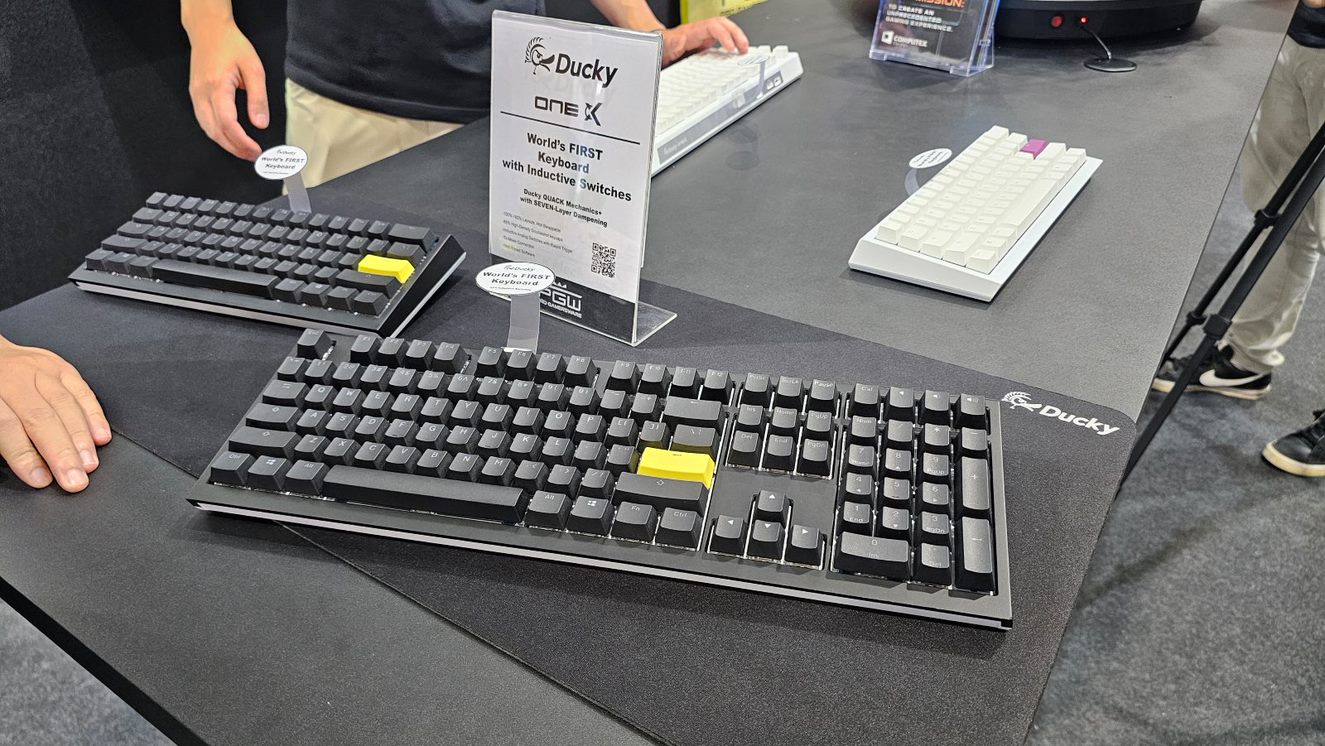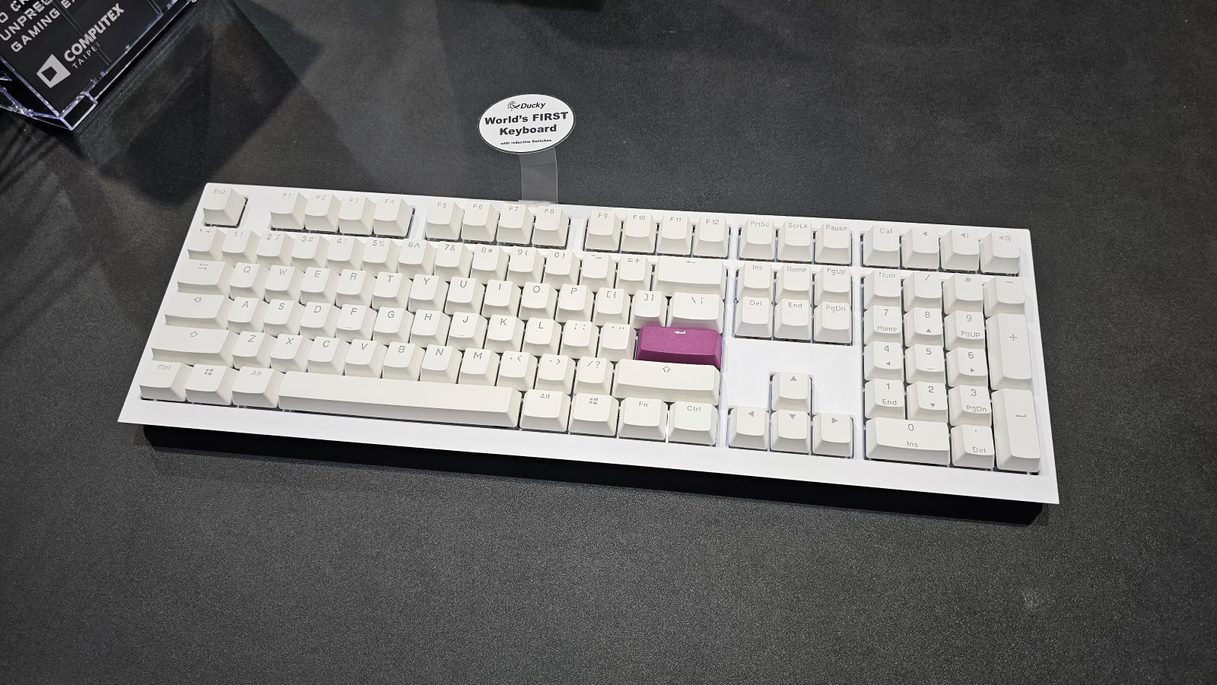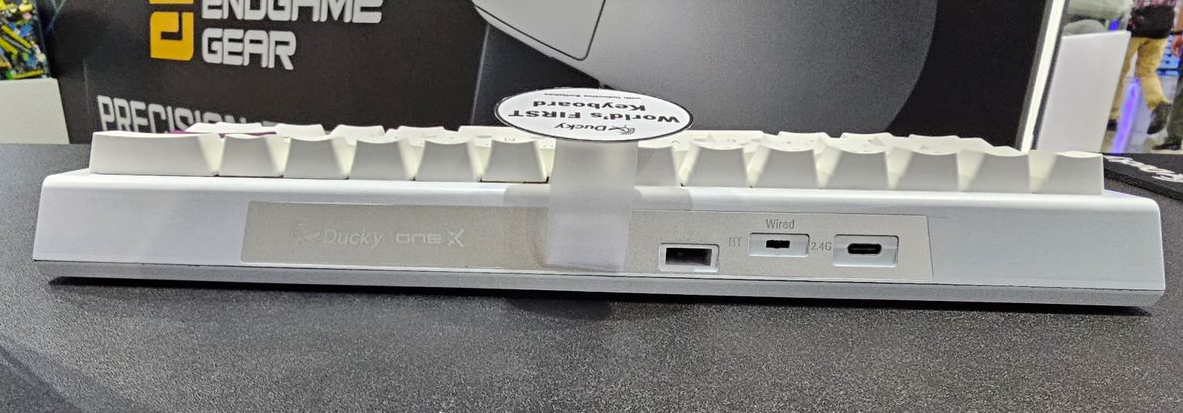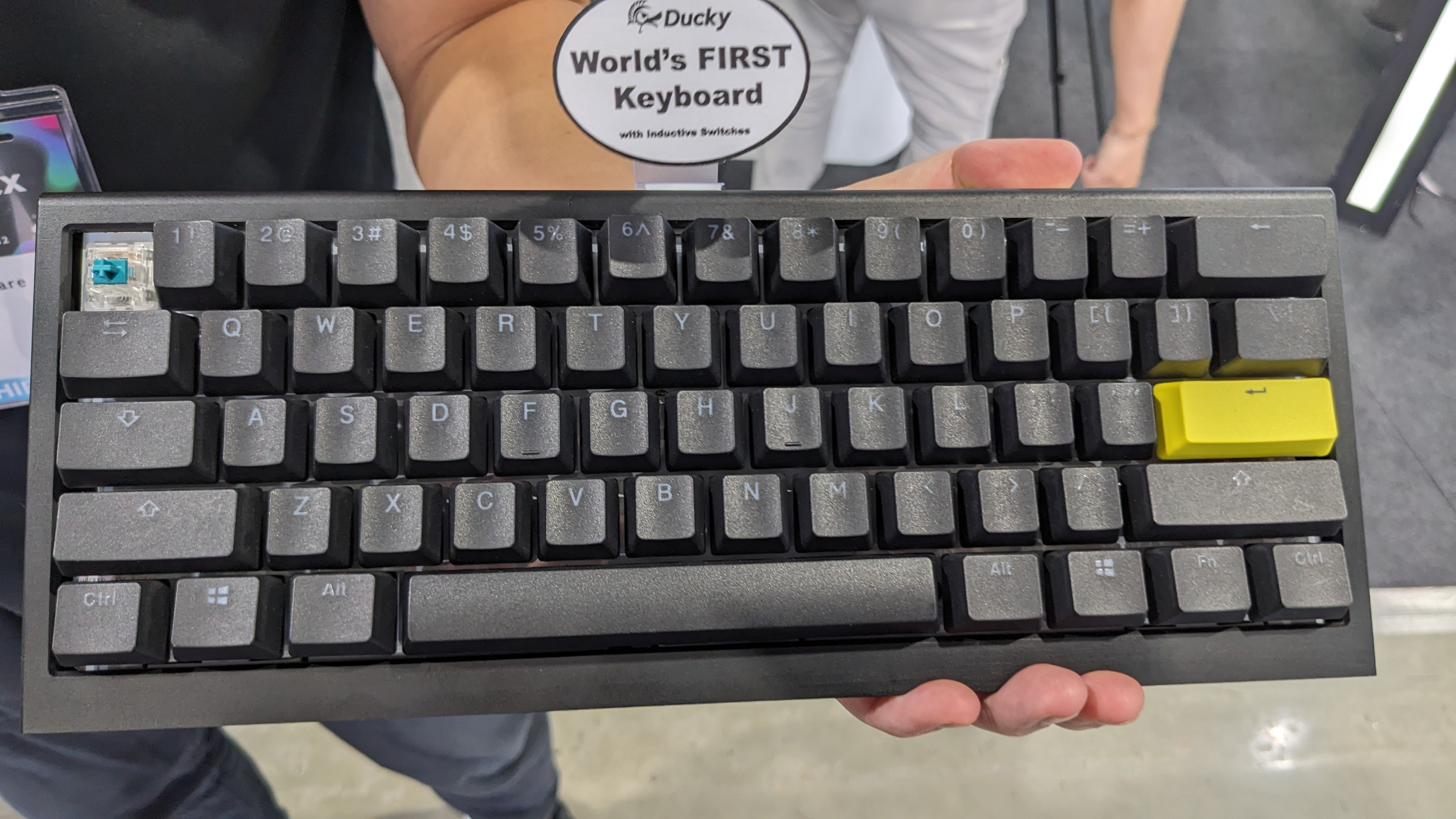
Over the last few years, we've seen a number of keyboards with analog switches that allow you to adjust their actuation points with software. Want a very sensitive key press so you can shoot faster in games? Set your actuation point to 0.5mm. Want a lower point so you don't end up with a slew of typos? Change it to 2mm.
Most of these analog keyboards use Hall Effect sensors that detect changes in magnetic fields as you depress each switch. But Cherry, the company behind the popular Cherry MX line of key switches, has another -- perhaps better -- way to create analog switches: inductive sensors. And Ducky will be the first company to deploy Cherry's inductive "MX Multipoint" switches in a keyboard, its upcoming Ducky One X.
With MX Multipoint, there's a series of coils on the PCB that detect changes in the electrical field as metal in the switches approaches them. This apparently uses less power than Hall Effect sensors because you don't need a sensor for every switch and the coils are built into the PCB. Cherry and Ducky also claim that there's less chance of interference from other electronics.
We got a chance to see the One X, which will be available in both 60 and 100 percent layouts in either black or white, at Ducky's Computex booth. The keyboard wasn't connected to a computer so we couldn't adjust the actuation point and see how sensitive the sensors were. Ducky says you'll be able to adjust the settings via a web-based tool.

The keyboard doesn't look particularly special. It uses standard OEM keycaps. The back surface contains a USB-C port for charging / connecting wired mode and a switch that allows you to choose among 2.4-GHz, Bluetooth, or wired modes. There's also a USB Type-A port that we assume is for pass-through.

The keys themselves felt pretty good for linear-style switches. Cherry makes three MX Multipoint switches: Silver, Cyan, and Black, all of which are linear but with slightly different feels.
Ducky will use the Cyan and only the Cyan switches on the One X. The Cyan has a "progressive spring," which feels a little harder the further down you press it. So, if you set this for a high action point and don't bottom out, the key may feel quite a bit lighter to you.

Ducky says that it is going with the inductive technology because using Hall Effect switches would drain too much power from the battery. However, there are several wireless Hall Effect keyboards on the market so whether the differences in power consumption translate to longer battery life remains to be seen. The Akko MOD007B-HE has Hall Effect switches and claims 40 hours of endurance.
Ducky did not have a battery life estimate for the One X so we'll have to wait and see how it fares when we get one in for testing. It's due out in Q3 with prices likely to be in the $140 to $170 range. However, one thing is clear: Cherry and Ducky are trying something new by deploying this technology and, if it lives up to the hype, keyboard enthusiasts everywhere could have a new and compelling option to rival the best wireless keyboards.







